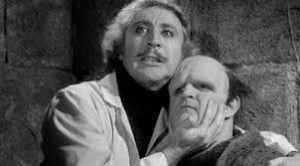My grandfather died of Alzheimer’s.
 It affected me in ways I still can’t understand.
It affected me in ways I still can’t understand.
It wasn’t pretty, so stark that my grandmother took her own life rather than spend winter days going to a hospital where the man she had loved for all those years increasingly didn’t recognize her.
So when Gene Wilder, who died of complications from Alzheimer’s at 83 on Monday, says, I didn’t want to tell anyone of my condition because I didn’t want to lose a fan’s smile, I don’t buy it.
I’ve got lots of demons, and what I’ve learned is that it’s best to be public about them. It removes the stigma. It makes one recognize they are not alone. It’s humbling (and that is good).
Gene Wilder was born Jerome Silberman in Milwaukee on June 11, 1933. His father, William, a manufacturer and salesman of novelty items, was an immigrant from Russia. His mother, the former Jeanne Baer, suffered from a rheumatic heart and a temperament that sometimes led her to punish him angrily and then smother him with
“I don’t like show business, I realized,” he said in 2008. “I like show, but I don’t like the business.”
He was by then enjoying a new career as a novelist. His “My French Whore,” published in 2007, was the story of a naïve young American who impersonates a German spy in World War I (“just fluff, but sweet fluff,” the novelist Carolyn See wrote in her review in The Washington Post). It was followed by two more novels, “The Woman Who Wouldn’t” and “Something to Remember You By,” and a story collection, “What Is This Thing Called Love?”
Jordan Walker-Pearlman said the cause was complications from Alzheimer’s Disease with which he co-existed for the last three years. The choice to keep this private was his choice, in talking with us and making a decision as a family.”
